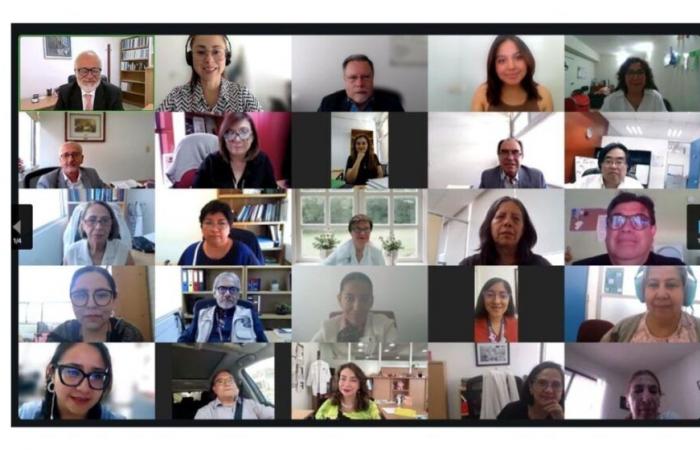“The update and technical domain are, without a doubt, fundamental features of professionalism. We cannot understand the exercise of the medical profession without addressing that fundamental aspect that is of course the domain of the technique in which the medical discipline entails,” said Master Ricardo Octavio Morales Carmona, academic secretary of the Postgraduate Studies Division of the Faculty.
During the “Professionalism in the Teaching and Practice of Medicine” conference, organized by the Institutional Program of Ethics and Bioethics of the Faculty of Medicine and moderated by its person responsible, the Bachelor of Indrani Morales Astudillo, the issue of professionalism was addressed from a medical point of view. In that sense, the human relationship that has to be established between the patient and the doctor is a relationship that has to stay in an environment of respect and careful and responsible management of what the doctor is perceiving in the patient.

In the session made by the platform Zoomon April 28, Maestro Morales Carmona mentioned that medical professionalism has to do with the knowledge that doctors acquire, their skills and skills to identify and diagnose a state of health, as well as to offer adequate treatment and follow up on the health problem that has been presented. Therefore, it is important to remember that the doctor must be aware that the relationship with patients has to be oriented on the principle of doing good and not causing them any damage, so he has to keep confidentiality about their health, their criteria and their evolution.
“Professionalism is a feature that is difficult to identify or define in a definitive way, but that does have some aspects that we can see in all the definitions that exist internationally and that have to do with the update, with respect, with human values, etc.,” said Master Morales Carmona.

In turn, he explained that some methods of teaching professionalism in medical residences that can be used are: problem -based learning, simulations and roll model, mentoring, tutoring, reflection, self -assessment, and professional identity; This with the purpose of implementing the medical-patient relationship and providing adequate care before facing a real medical situation.

Finally, Master Morales Carmona explained that professionalism is an essential component of medical practice, which significantly impacts the quality of care and the medical-patient relationship; Similarly, the teaching and evaluation of professionalism in residence are fundamental to form competent and ethical doctors, so “reflecting on these principles and applying them in daily practice is crucial to improve the quality of medical care and patient satisfaction.”
Matzayani panfilo







